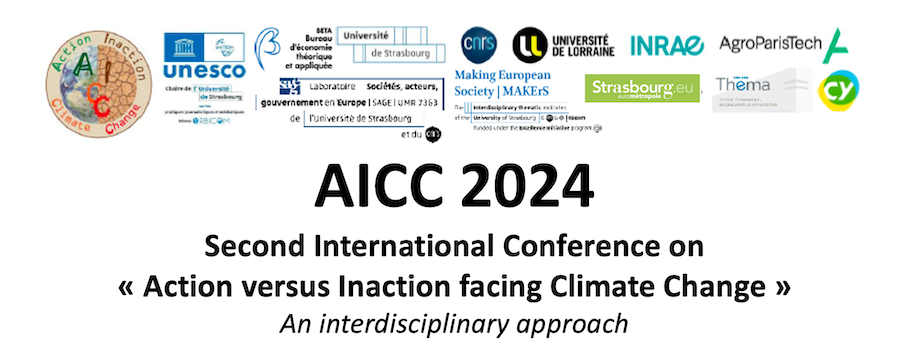
Findings and solutionsHuman activity, which affects most natural resources, is at the origine of climate change, which has an impact on the ecosystems of most living beings, including human populations. The effects, which have been present since at least the Industrial Revolution, can be local or global, and are unevenly distributed across economic sectors, regions and countries. The parties responsible for climate change are also unevenly distributed across sectors, regions, countries and individual social and economic situations. Climate change creates externalities: the agents responsible for it neither know nor perceive the negative effects of their actions on other agents. The causes and effects of climate change are extremely complex. Many people don't even understand the basics, and public ignorance is exacerbated by misinformation and fakenews conveyed by vested interests and social media. Even if CO2 emissions per unit of production decrease, overall emissions may continue to rise due to global growth in production. Moreover, climate scepticism remains widespread, even among academics. Policies to combat climate change are needed at different temporal and spatial scales. Responsibilities must be recognized, and cooperation is necessary. The major challenge in the fight against climate change is to decarbonize society without unduly sacrificing living standards. Climate change is the subject of a great deal of research, and many solutions have been proposed, such as: regulation of emissions from industry, governments, individuals and resources; effective pricing of externalities and the use of natural resources; research and development and technology transfer; dissemination of information at all levels of society; modification of preferences and behavior; adaptation to climate change; redistribution of resources within and between countries... . Some of these solutions have been implemented on a small scale around the world. However, these actions have been limited, with partial, uneven and slow implementation. This amounts to inaction in the fight against climate change. Often, a policy is not intrinsically good or bad; what counts is how it is implemented.
|

